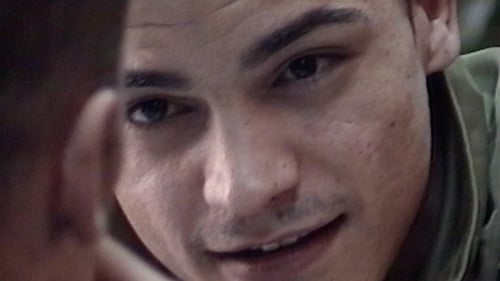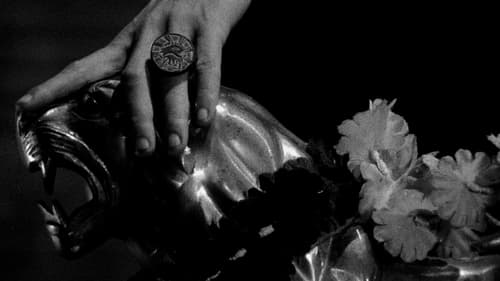Luis López Carrasco
出生 : 1981-01-01, Murcia, Spain

Writer
In 1992 – 500 years after the beginning of Spain's global empire with the discovery of America – Spain proudly presented itself to the international community as a modern, developed, dynamic country through the Olympic Games in Barcelona and the Expo in Seville. But for filmmaker Luis López Carrasco (1981, Murcia), 1992 was also the year in which the regional parliament building in Cartagena was razed during furious protests against the threatened closure of various local industries. El año del descubrimiento revives this almost forgotten history in a typical Spanish bar in Cartagena, where different generations come together to drink, eat, smoke and talk. Stories from witnesses, demonstrators and strikers from back then and discussions among younger café visitors on themes such as class consciousness, the economic crisis and the role of unions percolate to the surface amidst talk of other life issues.

Director
In 1992 – 500 years after the beginning of Spain's global empire with the discovery of America – Spain proudly presented itself to the international community as a modern, developed, dynamic country through the Olympic Games in Barcelona and the Expo in Seville. But for filmmaker Luis López Carrasco (1981, Murcia), 1992 was also the year in which the regional parliament building in Cartagena was razed during furious protests against the threatened closure of various local industries. El año del descubrimiento revives this almost forgotten history in a typical Spanish bar in Cartagena, where different generations come together to drink, eat, smoke and talk. Stories from witnesses, demonstrators and strikers from back then and discussions among younger café visitors on themes such as class consciousness, the economic crisis and the role of unions percolate to the surface amidst talk of other life issues.

Writer
Tesa Arranz, a key figure in the 1980s Madrid scene and the lead singer of the Zombies, has painted over 500 portraits of outer-space creatures. Confronting the singer’s paintings with the memories of her youth, her poems and diaries, ALIENS depicts an emotional landscape in Spanish history where happiness, nightmarish experimentations and alienation walked hand in hand

Director
Tesa Arranz, a key figure in the 1980s Madrid scene and the lead singer of the Zombies, has painted over 500 portraits of outer-space creatures. Confronting the singer’s paintings with the memories of her youth, her poems and diaries, ALIENS depicts an emotional landscape in Spanish history where happiness, nightmarish experimentations and alienation walked hand in hand

Executive Producer
Hadji, a young man living humbly on the banks of the Ganges River and in desperate straits after losing all his possessions, is accepted as a disciple by a mysterious spiritual guide.

Producer
It is the year 2052, on Earth, in Spain, and the final days of almost everything. The city is a string of abandoned construction sites. Everyday there are fewer people and not all of them are human. A sheep costs four and a half million pesetas and you have to spend a lot of bullets to pay for one.

Writer
Back to the Future, Spain 1982: at a euphoric party, young people celebrate the election victory of the Socialist Party. López Carrasco stages the past with stunning precision and shows the future as a surprising result: well, the present.

Director
Back to the Future, Spain 1982: at a euphoric party, young people celebrate the election victory of the Socialist Party. López Carrasco stages the past with stunning precision and shows the future as a surprising result: well, the present.

Director
As they travel through the Isle of Bioko, Antonia tells Pilar stories related to the Spanish colonial past. Carlos spends a hot summer afternoon in 2011 with his family. José and Diana talk about the future.

Director
Tourist Route, Madrid.

Director
"When they arrive, they didn't want to leave"

Director
MATERIAL 1. adj. Having substance or capable of being treated as fact; not imaginary. 2. adj. Derived from or composed of matter. 3. adj. Having material or physical form or substance. 4. adj. Directly relevant to a matter especially a law case. 5. adj. Concerned with or affecting physical as distinct from intellectual or psychological well-being. 6. adj. Concerned with worldly rather than spiritual interests. 7. n. Artifact made by weaving or felting or knitting or crocheting natural or synthetic fibers. 8. n. Things needed for doing or making something. 9. n. Information (data or ideas or observations) that can be used or reworked into a finished form. 10. n. The tangible substance that goes into the makeup of a physical object.

Director
1. n. A travelling company of enterteniers such as acrobats, clowns, trapeze artistes, and trained animals.
2. n. A public performance given such a company.
3. n. An oval or circular arena, usuallytented and surrounded by tiers of seats, in which such a performances is held.
4. n. A travlling group of prefessional sportsmen.

Director
Summer afternoon.

Director
Four iconic sequences in the history of Spanish cinema are aesthetically revisited. A strictly geographical search that places the camera in the very same spots where the shots of the original films were taken. No lighting. No audio edition. No actors. Just whatever there is fron of the camera.

Director
An unfinished canvas apparently painted by Antonio López resists (does it?) the charges of weather and nature during a whole week. This week is shown four times from four different audiovisual perspectives which try to analyze the relationship between film author and landscape representation.

Director

Director












